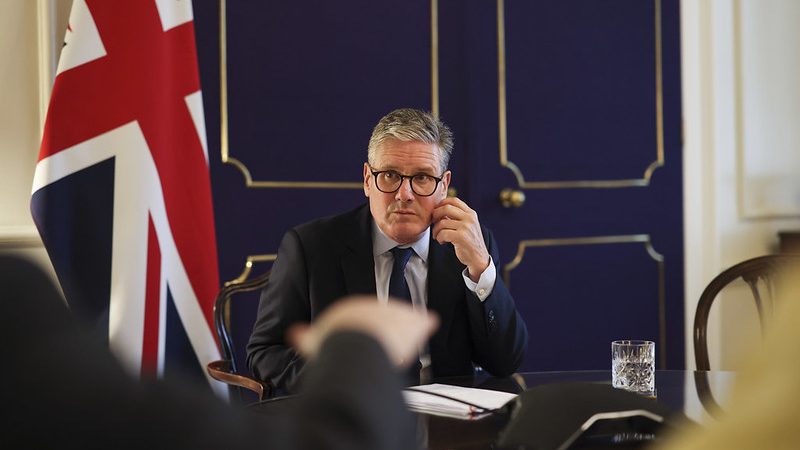
Will Keir Starmer’s reset work? And will his “plan for change” – to be revealed in a major speech this week – persuade voters to put their trust in the new government and its missions?
The partial answer to these questions is that it will be huge challenge to shift the polls in the short term: there is a massive problem with voter cynicism towards politicians and political parties of all colours.
Because even if they instinctively like the idea of putting national improvement targets on NHS waiting lists, school-readiness, improved policing and driving up living standards, research has shown the messaging is unlikely to do much on its own.
Right now, the public mood is that no political parties can be trusted do deliver anything at all. Voters have precisely no faith in Westminster.
Politics of performance
But I’m not all doom and gloom. In the longer term, things might look a little rosier. It’s possible Sir Keir Starmer and his strategy chief Morgan McSweeney might actually be onto something, but only if their reforms actually work.
It’s on these results that No 10. and its delivery departments are really betting the house. They believe that if they do “fix the national foundations” and start improving public services, the voters will back them again in 2029.
This is where Sir Keir is at his most comfortable: thinking about state capacity and empowering public servants to come up with enduring solutions to national problems.
READ MORE: Starmer poised to unveil ‘measurable milestones’ in Labour’s missions for government
In many ways, a belief in this kind of approach is the prime minister’s reposte to populism, to politics as vibes. Build tangible improvements to people’s quality of life and they will reward it.
Whisper it, but he might well be right. A unique new analysis by Public First, where I am a partner, has tracked public perception of the quality of public services – specifically the NHS, schools and policing – and against actual performance.
We found a positive correlation in health, for example. In regions where waiting lists are lower and GP appointments are easier to come by, voters rate the NHS higher. Where the opposite is true, they do not. In secondary education, when there are lots of Ofsted-rated good or outstanding schools getting good GCSE results, voters think the schools system is high-performing.
In short – while the correlation is less present in police performance – voters are good judges of performance in their public services. The important political lesson is that they will recognise when broken Britain is being fixed.
Everything to play for
Further, we actually have an idea of the kinds of improvements that would trigger an uptick in voters’ view of what is working.
Our analysis suggests that an additional 54,000 GP appointments with a waiting time of a week or less each month could see Staffordshire and Stoke-on-Trent go from being the seventh happiest region when it comes to NHS performance to the same levels of satisfaction as the most positive region in the country, Coventry and Warwickshire.
Stoke, of course, was home to a couple of totemic bricks in the red wall that turned blue in 2019 and then red again in 2024.
READ MORE: ‘Why Keir Starmer should embrace populism ahead of the next election’
It is home to exactly the hero voters that McSweeney and co successfully brought back to Labour in July but who are, just increasingly deeply cynical about whether government can really bring about the change they want.
None of this will be easy. Driving improvements in public services is hard. Delivering things like 54,000 more GP appointments in Stoke and Staffordshire will be much, much more easily said than done.
But the point is this: if they can deliver commitments in “the plan for change” then the voters ought to follow, and, in the process, really undermine the populist cause.
It’s no exaggeration to say there’s everything to play for.
SIGN UP: Get the best daily roundup and analysis of Labour news and comment in our newsletter
For more from LabourList, follow us on Threads, Bluesky, X, Facebook, Instagram or WhatsApp.
- SHARE: If you have anything to share that we should be looking into or publishing about this story – or any other topic involving Labour– contact us (strictly anonymously if you wish) at [email protected].
- SUBSCRIBE: Sign up to LabourList’s morning email here for the best briefing on everything Labour, every weekday morning.
- DONATE: If you value our work, please donate to become one of our supporters here and help sustain and expand our coverage.
- PARTNER: If you or your organisation might be interested in partnering with us on sponsored events or content, email [email protected].




More from LabourList
‘Ukraine is Europe’s frontier – and Labour must stay resolute in its defence’
Vast majority of Labour members back defence spending boost and NATO membership – poll
‘Bold action, not piecemeal fixes, is the answer to Britain’s housing shortage’